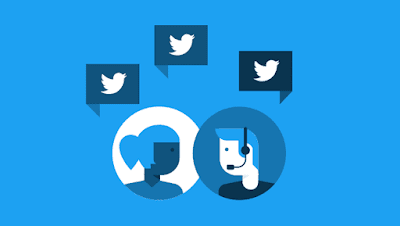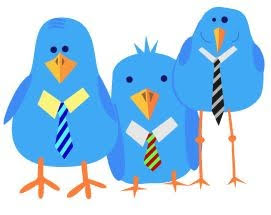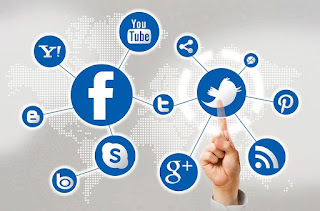CRM Best practices, Twitter Customer Services!
A perfectly legitimate question is of course: Why should I use Twitter as a customer service channel at all? You can't expect anything more than stinking twitter customer services anyway! i.e. customer service for twitter
Not at all.
Twitter should be taken seriously as a communication channel. Like e-mail or the phone. The difference - and that makes it daunting on the one hand, but also so useful on the other: Twitter is public.
If someone sends you a short message via Twitter reply - i.e. with the addition @YOUR_COMPANY in the tweet, at least the followers of the Twitter user can possibly even see all Internet users publicly. That's why customers like to use this channel to post a concern to which they expect an answer. And this as quickly as possible.
An example from my own experience with Deutsche Bahn and Frankfurt Airport.
I was standing by the latter and wasn't sure where to find the Deutsche Bahn lounge. So I sent a tweet asking “Where can I find the DB Lounge at Airport FFM?” and addressed it to the Twitter accounts of Deutsche Bahn and the operating company of Frankfurt Airport, FraportAG.
Within a few minutes, FraportAG and some of my followers had tweeted directions back to me. That's the point of Twitter - to share information as quickly as possible, as close to real time as possible. The train didn't answer me until 2 days later, clearly that I no longer needed the information. A normal customer would have been annoyed at this point. In the meantime, however, the railway has done a lot and has set up a dedicated social media team for such inquiries.
You are probably wondering what I was aiming for with my Twitter request? Well, for one thing, I really wanted to know where the DB Lounge is. Airport FFM is not exactly small and I wanted to avoid walking in the wrong direction for minutes. On the other hand, I wanted to know how quickly and precisely people responded.
Of course I could have gone to the information desk - but then you and I would have missed this wonderful case study![]()
But what can generally be done now?
1. Listen when your company or brand is mentioned on Twitter
2. Start a Twitter account for your company
The actual “start” is done within a few minutes. What you should be aware of is that having a corporate Twitter account means someone needs to be careful. Regular information or at least reports should be communicated so that customers and interests perceive your account as alive.
Also Read: 5 tips on how to listen to your customers | SCRM Marketing | Social CRM strategy
3. Respond to questions and criticism, thank you for feedback
What sounds like normal politeness is particularly essential on Twitter: Every time you interact via your company account, there is an opportunity for a reaction by potential customers and prospects, which in turn can be noticed by their followers and lead to further interaction .
4. Be quick
As already mentioned in my example above: Respond as soon as possible to requests made via Twitter. On Twitter in particular, users are increasingly getting used to reaction times every minute. Often an answer that is too late is no longer helpful. At least not impressive anymore.
5. Customers are on Facebook - multipliers on Twitter
In my experience, there are significantly more people on Twitter who want to communicate meaningfully and meaningfully. People who are aware of their own reach and ability to reach and activate others and who think in a networked way, whereas posts and comments on Facebook are more of a communicative one-way street or conversations quickly run out of focus and develop a momentum among the commentators.
You can find some interesting examples in a blogger and twitterer company directly addressed here












0 Comments